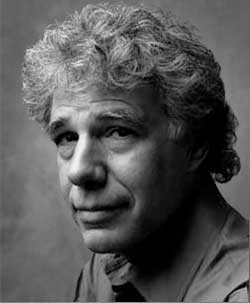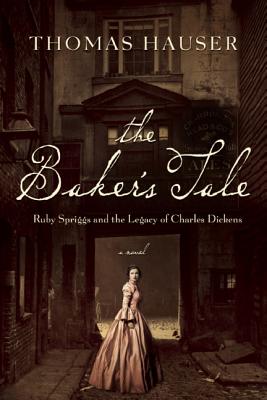Thomas Hauser and a little Dickens


Photo credit: Howard Schatz
I have known Thomas Hauser for over a decade and am unreserved about sharing with you that he is an influence on me and that I consider myself fortunate to know and learn from him and to be on a friendly basis with him.
He has a Hall of Fame track record writing about this savage science, our shared addiction, pugilism.
I dare say sport and the people involved, even those who sometimes feel the sting of the lash of his pen, which can use acid as ink when he’s in investigative mode, are fortunate to have him involved. Because he serves as a potent conscience, a consistent prodder who reminds us of the benchmarks we should be trying to hit to make the sport more fair, more decent, less corrupt…better.
Hauser will sometimes send me an email, after he reads something I’ve written that he’s enjoyed reading and has a degree of heft, of substance, of spine to it, and say, “You should do more of this.” I take that advice to heart.
I must confess, in the spirit of admissions, I also silently curse him when at a press conference, I see the ole beanpole eat two chocolate chip cookies as I note no deleterious effects to his waistline. And then the conscience prod kicks in, and I shove away, sometimes, the cookie that I’m about to bite into.

Hauser, who contributes to the website I edit, TheSweetScience, as well as THE RING magazine, doesn’t just write about boxing. He has a new book out, called “The Baker’s Tale,” and it’s about Charles Dickens. I chatted with the man I call the “Dean of Fight Writers” about that effort and slid in some boxing talk, as well.
Q: The Baker’s Tale marks the second year in a row that you’ve written a book about Charles Dickens. Why?
Hauser: Boxing writing is just part of what I do. One of the joys of being a writer is that I can take any subject I’m interested in, research, learn more and share my thoughts on it with readers now and forever. Both of my Dickens books are novels. I wrote “The Final Recollections of Charles Dickens” because I was drawn to Dickens by his impact on society and the power of his writing. It was a wonderful experience for me and I wanted that high again.
Q: How has the reception been so far?
Hauser: So far, so good. The Final Recollections of Charles Dickens got nice reviews. The New York Times called it “a ripping tale” and “a tight page-turner of the kind Dickens wrote when he wasn’t spinning out stories that paid by the inch. It’s a little early for reviews of The Baker’s Tale but Publishers Weekly, which is a Bible of sorts for the book industry, just called it an endearing tale that anchors readers in a bygone age and is true to its source of inspiration.
Q: Was Dickens a boxing fan?
Hauser: To the best of my knowledge, no. It has been widely written that he attended the April 17, 1860, fight between Tom Sayers and John Heenan, which was that era’s version of (Floyd) Mayweather (Jr.)-(Manny) Pacquiao. But recently discovered Dickens letters suggest that he gave his ticket away at the last minute.
Q: If Dickens were here today, would he write about boxing?
Hauser: Obviously, I can’t answer that with certainty. But Dickens wrote some things that are applicable to boxing. When I was researching The Final Recollection of Charles Dickens, I read all of Dickens’ books in their entirety. That’s a lot of Dickens. And I reread them for The Baker’s Tale. There’s a passage in “The Pickwick Papers,” where Dickens writes, “Man is but mortal. There is a point beyond which human courage cannot extend.” I remember reading that and thinking, “Muhammad Ali challenged that notion.”
Q: Where does The Baker’s Tale rank among the 47 Hauser books?
Hauser: Right now, it’s my favorite. And I’m not just saying that because it’s the one I’ve most recently written. The writing in The Baker’s Tale is more lyrical than anything I’ve written before. And I’m particularly fond of the characters and plot.
Q: And your favorite Hauser boxing books?
Hauser: “Muhammad Ali: His Life and Times,” “Mark Twain Remembers,” which has a very strong boxing theme; “Waiting for Carver Boyd,” which, like the Twain book, is a novel, and “The Black Lights.” The Black Lights was my first book about boxing. That’s the one that started it all for me.
Michael Woods once wrote a book called, “Every Day I Write the Book”…no, waitaminnit…that was Elvis Costello. And that was a song. Never mind.














